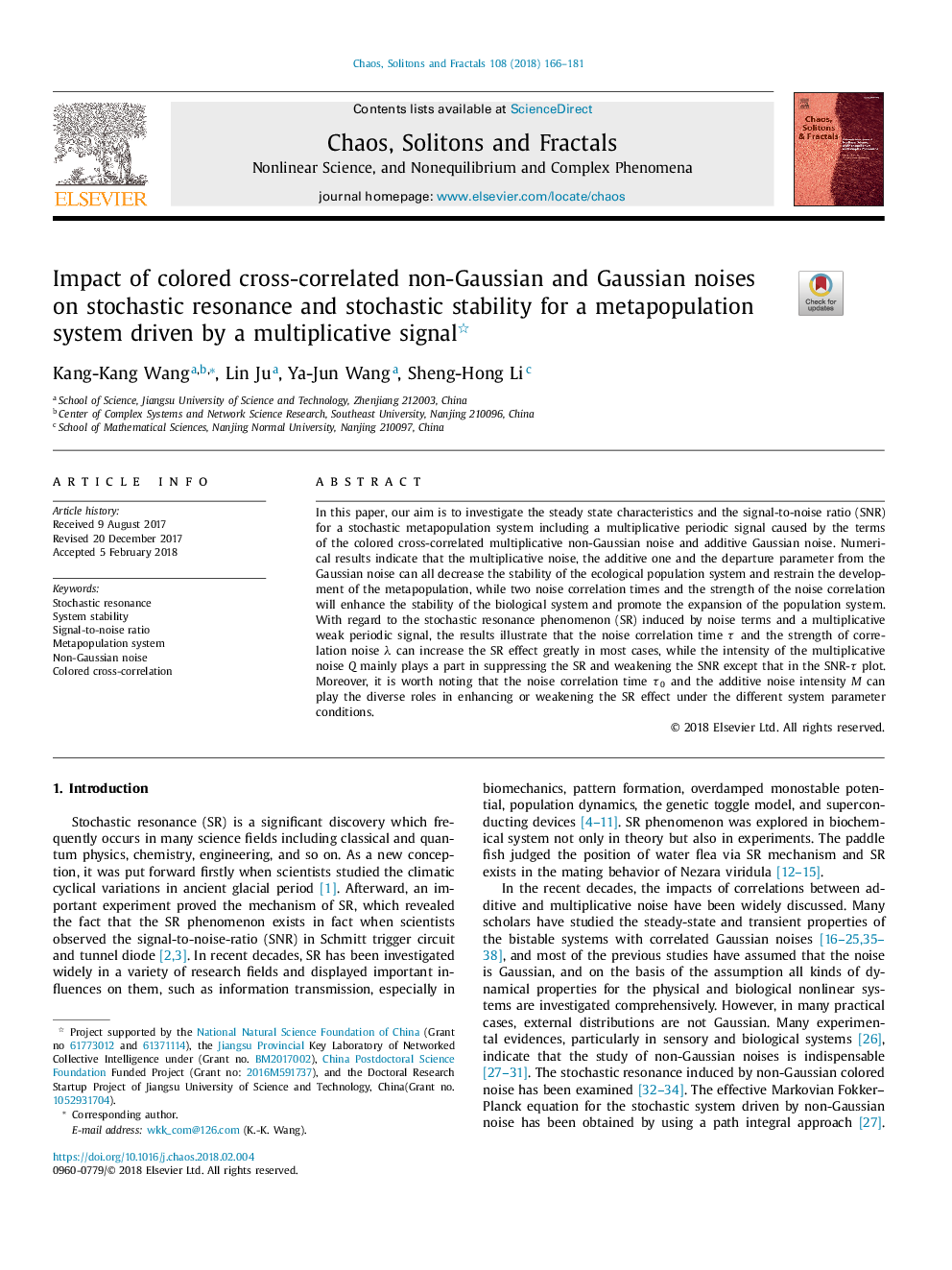ترجمه فارسی عنوان مقاله
اثر صداهای غیر غایی گاوس و گاوسی بر روی رزونانس تصادفی و پایداری تصادفی برای یک سیستم متاوپولتیکی که توسط یک سیگنال چندگانه
عنوان انگلیسی
Impact of colored cross-correlated non-Gaussian and Gaussian noises on stochastic resonance and stochastic stability for a metapopulation system driven by a multiplicative signal
| کد مقاله | سال انتشار | تعداد صفحات مقاله انگلیسی |
|---|---|---|
| 152321 | 2018 | 16 صفحه PDF |
منبع

Publisher : Elsevier - Science Direct (الزویر - ساینس دایرکت)
Journal : Chaos, Solitons & Fractals, Volume 108, March 2018, Pages 166-181
ترجمه کلمات کلیدی
رزونانس تصادفی، ثبات سیستم، نسبت سیگنال به نویز، سیستم متاپوپولتیک، سر و صدای غیرقانونی، همبستگی متقابل رنگی،
کلمات کلیدی انگلیسی
Stochastic resonance; System stability; Signal-to-noise ratio; Metapopulation system; Non-Gaussian noise; Colored cross-correlation;

